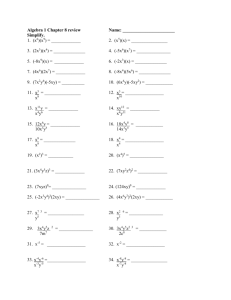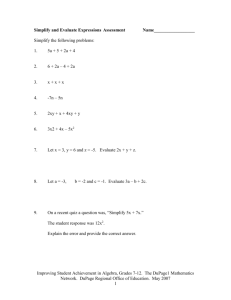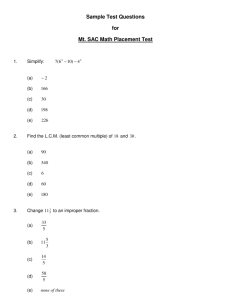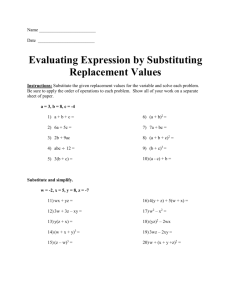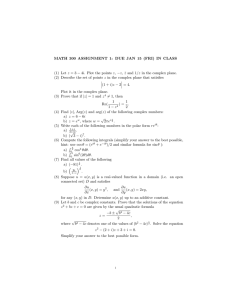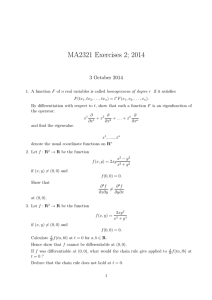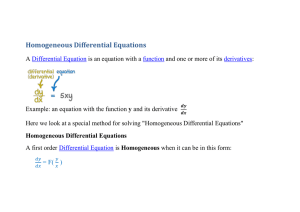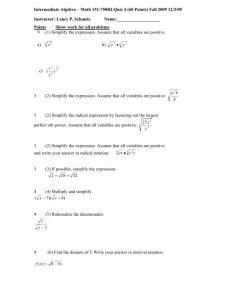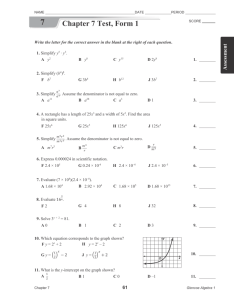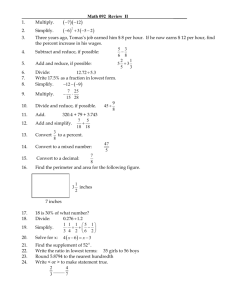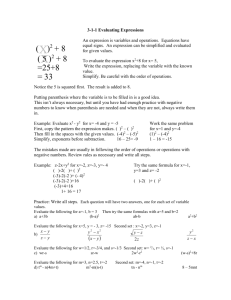Using completing square to simplify surds, doc
advertisement
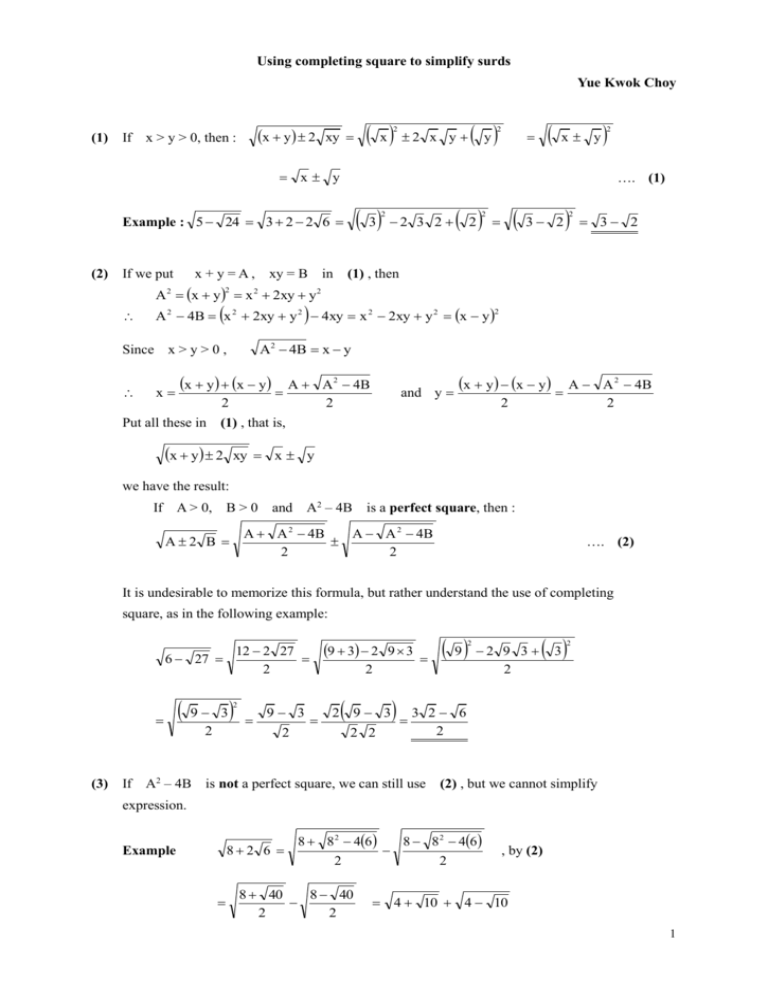
Using completing square to simplify surds Yue Kwok Choy (1) If x y 2 x > y > 0, then : xy x 2 2 x y y 2 x y 2 x y …. (1) 3 2 2 Example : 5 24 3 2 2 6 (2) If we put x + y = A , xy = B in 3 2 2 2 3 2 2 3 2 (1) , then A 2 x y x 2 2xy y2 2 A 2 4B x 2 2xy y 2 4xy x 2 2xy y 2 x y A2 4B x y Since x > y > 0 , x 2 x y x y A A 2 4B 2 2 Put all these in and y x y x y A 2 A 2 4B 2 (1) , that is, x y 2 xy x y we have the result: A > 0, B > 0 and A2 – 4B is a perfect square, then : If A A 2 4B A A 2 4B 2 2 A2 B …. (2) It is undesirable to memorize this formula, but rather understand the use of completing square, as in the following example: 9 3 2 12 2 27 6 27 2 (3) If 9 3 2 2 9 3 2 93 2 2 9 3 2 2 9 2 2 3 A2 – 4B is not a perfect square, we can still use 9 3 2 3 2 2 6 2 (2) , but we cannot simplify expression. 82 6 Example 8 8 2 46 8 8 2 46 2 2 8 40 8 40 2 2 , by (2) 4 10 4 10 1 (4) More examples : (a) y 74 3 74 3 Simplify y 2 = 22 2 4 3 3 22 2 4 3 3 = 2 3 2 2 2 3 2 = 2 3 2 3 4 y = x 2 x 1 x 2 x 1 (b) Simplify (i) x 2, If y= x 1 2 = x 1 1 = x 1 1 12 2 2 x 1 1 2 x 1 2 x 1 1 12 x 1 1 2 x 1 1 2 x 1 1x<2, (ii) If 12 2 y= 1 = = 1 x 1 1 x 1 2 12 2 x 1 1 x 1 2 1 x 1 x 1 1 x 1 2 x 1 2 2 2 x 1 , if x 2 y 2 , if 1 x 2 Note : If (5) x < 1 , y is undefined. Exercise : Simplify : (a) (b) (c) Ans. 18 8 3 2 3 12 6 3 1 1 3 2 2 1 1 3 2 2 1 12 140 (a) 1 8 60 3 5 (b) 2 10 80 3 2 (c) 0 2
